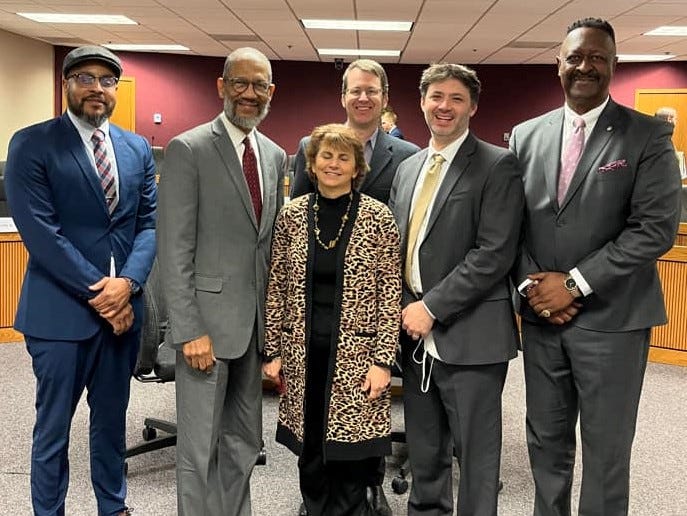Word&Way News: Feb. 25
Here’s the weekly roundup from Word&Way. Paid subscribers to A Public Witness received an essay exploring the dangers of Christian Nationalism as seen in Russia.
Support our journalism ministry by upgrading to a paid e-newsletter subscription today!
Top 5 at wordandway.org
The Parents (Who Used to Come to Your Church) Are Not Okay. Lauren Graeber explains why many parents of young children are still struggling in the pandemic.
Running the Race. Christopher Dixon reflects on prepping for marathon races as an analogy for the church as we reach the two-year mark of dealing with a ravaging pandemic.
We Pray for Peace, Can We Pray for War? John Sianghio tackles a tough question that comes with international conflict: Are there situations that merit appeals to the divine to guide the use of force?
‘Pray for Ukraine:’ Religious Leaders Call for Peace & God’s Protection. Bob Smietana reported on calls for peace by Christians around the world after Russia invaded Ukraine.
Southern Baptist Leaders Apologize to Sex Abuse Survivor. Deepa Bharath reports on the move by the SBC Executive Committee to give an apology and monetary settlement to a sexual abuse survivor who the SBC’s news service incorrectly wrote about in 2019.
Other News of Note
A Columbia Missourian report on bills to push guns in houses of worship quotes Brian Kaylor, who testified against the bills in a Missouri House General Laws Committee hearing on Wednesday.
Michelle Boorstein wrote for the Washington Post about how “Jim Wallis is on a mission to make voting rights the religious issue of our time.”
Ken Camp reported for Baptist Standard about a Truett Seminary forum on racial healing with Robert P. Jones, author of White Too Long.
Michael Woolf, senior minister of Lake Street Church in Evanston, Illinois, wrote for Sojourners about “what reparations is costing my church.”
Before Russia invaded Ukraine this week, Jayson Casper reported for Christianity Today about what Baptist and Pentecostal pastors in Ukraine were saying during services on Sunday.
Alan Donaldson, general secretary of the European Baptist Federation, wrote for Good Faith Media about how Ukrainian church leaders are “praying for peace, preparing for occupation.”
Kate Shellnutt of Christianity Today reported on new analysis from Forum 18 documenting the religious persecution by Russian officials in the occupied Ukrainian territory of Crimea. Pentecostals, Baptists, and other religious groups have been fined for missionary activity.
Dangerous Dogma
This week: Brian Zahnd on When Everything’s on Fire
Other good podcasts this week:
Brian Kaylor was the guest on En Route with Dennis Sanders talk about Russia, Ukraine, and Christian Nationalism.
Straight White American Jesus talked to someone who went undercover during the book burning held recently by Tennessee pastor Greg Locke.
Quick Take
by Brian Kaylor, Word&Way Editor-in-Chief
With Russia violently attacking Ukraine, lots of people are trying to make sense of it. Not all are offering helpful words.
Consider a piece by Robert Jeffress, pastor of First Baptist Church in Dallas, Texas. Although he rightly criticized Russian President Vladimir Putin as “evil” (which fortunately means Jeffress broke from his favorite U.S. politician), he still assigns this “devastating” war to God’s plan.
“Wars remind us that God is sovereign over history. Nations rise and fall at [God’s] command,” Jeffress wrote. “The evil designs of dictators like Vladimir Putin are, in some mysterious way, turned and used by God to accomplish his greater purposes in the world.”
This theology is akin to telling parents that their child died because it was God’s will. How can we utter such cruel words when we aren’t God?
Theologizing about war can come easily from a comfy chair in a pastoral office in Dallas. But as my friend Elisey Pronin, a Baptist pastor in Ukraine, says, “War, it’s just terrible.” And he knows. He ministered in eastern Ukraine when Russian-backed separatists violently took over his city in 2014 (and continue to persecute Christians there). Now he ministers in western Ukraine as another Russian war comes.
If we want to know where God is in this war, we don’t need to climb into Putin’s head. Rather, we should look to the hospitals with injured people, the subways in Kyiv filled with parents trying to comfort their children while waiting out bomb blasts, the road just across the border in Poland where hungry and tired Ukrainians arrive after leaving behind their entire lives.
Jesus is there with the least of these with a simple message: Here is something to drink, here are some clothes, here is my hand to hold.
Photo of the Week

Thanks for reading!



